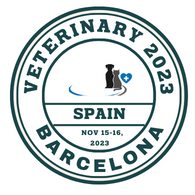Veterinary and Animal Science
Veterinary and Animal Science contributes to human welfare by detecting and containing zoonotic diseases. Security is provided, and in a roundabout manner through applications to people resulting from fundamentally curative research. Through domesticated animal welfare monitoring and treatment, as well as by keeping pets healthy and long-lived, they also contribute to maintaining the food supply. Depending on the sort of study, veterinary researchers frequently collaborate with experts in disease transmission and other health or general researchers. Veterinarians are typically morally obligated to be concerned about animal welfare. Veterinary and Animal Science play a vital role in the well-being of animals and the health of our planet. This multidisciplinary field encompasses a wide range of topics and areas of study, each contributing to the understanding, care, and conservation of animals. Here's a brief overview of key content areas within Veterinary and Animal Science: Veterinary Medicine: Veterinary professionals diagnose, treat, and prevent diseases in animals, ensuring their health and well-being. They are crucial in providing medical care to pets, livestock, and even wildlife. Animal Nutrition: The study of dietary requirements for animals is essential for their growth, health, and productivity. Nutritionists develop balanced diets tailored to the specific needs of various species.
Related Conference of Veterinary and Animal Science
Veterinary and Animal Science Conference Speakers
Recommended Sessions
- Animal Structure & Function
- Animal Vaccines
- Emergency and Critical Care
- Internal Medicine
- Anesthesia and Analgesia
- Animal Dermatology
- Animal Genetics
- Animal Microbiology
- Animal Physiology
- Animal Reproduction
- Animal Welfare
- Behavioral Medicine
- Clinical Pharmacology
- Environmental Threats
- Human-Animal Bond
- Layer Poultry Farming
- Small Animal Medicine and Surgery
- Veterinary and Animal Science
- Veterinary and Social Science Research
- Veterinary Dentistry
- Veterinary Parasitology
- Veterinary Telemedicine
- Wildlife and Ecosystem Health
- Zoonotic & Infectious Diseases
Related Journals
Are you interested in
- Animal Nutrition & Welfare - Veterinary Summit 2026 (Japan)
- Animal Nutrition, Welfare & Ethics - Veterinary Summit 2026 (Japan)
- Antimicrobial Resistance & Global Biosecurity - Veterinary Summit 2026 (Japan)
- Companion Animal Medicine & Surgery - Veterinary Summit 2026 (Japan)
- Livestock Health & Production Management - Veterinary Summit 2026 (Japan)
- Veterinary Biotechnology & AI in Animal Health - Veterinary Summit 2026 (Japan)
- Wildlife, Aquatic & Exotic Animal Medicine - Veterinary Summit 2026 (Japan)
- Young Researchers & Innovation Forum - Veterinary Summit 2026 (Japan)
- Young Veterinarians & Research Innovation Forum - Veterinary Summit 2026 (Japan)
- Zoonotic Diseases & One Health - Veterinary Summit 2026 (Japan)

